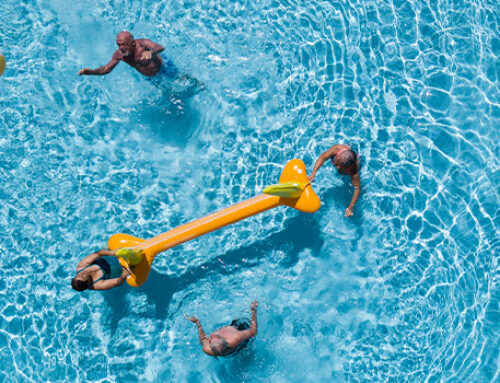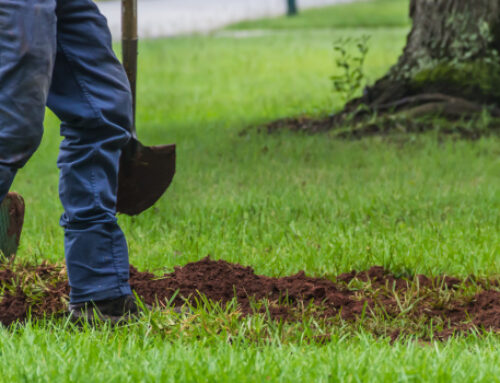As summer heats up, so does the activity at community pools. A community pool offers residents a great way to cool off, relax, and socialize with their neighbors. Still, it’s important to remember that a neighborhood pool is not the same as a private pool. While a backyard pool is only subject to a homeowner’s personal rules, patrons of public pools must follow community rules in order to keep the pool clean and safe for all residents. Not only that, but a little common sense (and common courtesy) will go a long way toward making sure that everyone is able to enjoy themselves at the pool this summer.
Here are some of the basic tenets of poolside etiquette that will help you be responsible and respectful when it comes to using your community pool.
Respect pool hours.
Every HOA-managed community pool will have specific hours of operation. How these hours are enforced will vary based on community. For example, some pools will have gates that only open with a digital keycard during certain hours. Others may be supervised by a manager who doesn’t allow admittance after closing time. However, if your community pool chooses to enforce their hours, respect them. Do not try to use the pool when it is closed; not only would this be disrespectful to your community, but you may even be fined or face a trespassing charge if caught.
Follow all posted rules.
Pool rules should be posted where everyone can see them. These guidelines are in place not only for safety, but also to ensure the pool area remains clean and enjoyable for everyone. While specific rules may vary based on the community, common pool rules include:
- No glass containers in the pool area
- Proper swim attire required
- No running on the pool deck
- No roughhousing on the pool deck or in the pool
- Shower before entering the pool
- No diving in certain areas of the pool
- No loud music or disruptive behavior
Following these rules will help keep the pool area a pleasant place for all residents.
Limit guests.
Most community pools allow residents to bring a limited number of guests to the pool with them “Guests” include friends or family who do not also live in the neighborhood. Be mindful of these restrictions to prevent overcrowding. Also, remember that you, as the resident, are ultimately responsible for your guests’ behavior. Ensure they also follow the pool rules and show courtesy to other swimmers.
Supervise children.
If you have children, always supervise them closely. This is primarily a matter of safety. Pools can be extremely dangerous, especially for young children who may not be strong swimmers, or who could get lost in a crowd and not be able to get the help they need if they are in the water and in distress. Use proper flotation devices for younger children, and never leave them unattended, even for a moment. Remember that drowning usually happens quickly and silently, and permanent physical damage can be done in less than a minute.
Additionally, teaching your children pool safety and respectful behavior can go a long way toward creating a harmonious environment. Remind them to be mindful of others. Children should be aware of where they are walking, where they put their belongings, how much noise they are making, and generally the impact their behavior might have on the people around them.
Keep it clean.
Maintaining cleanliness at the pool is a shared responsibility. Residents are expected to clean up after themselves, as neighborhood pools usually do not have dedicated staff on-site to handle trash or other messes. Always dispose of trash in the proper bins and avoid bringing food and drinks that can easily spill or that could create a large mess. Be mindful of where you set cups, drinks, snack bags, or plates of food. If you do have a spill, clean it up promptly to prevent attracting pests or causing slip hazards.
Additionally, avoid bringing bulky items into the pool area, such as inflatable rafts or large pool toys, unless specifically permitted by your HOA. These can clutter the pool, annoy other swimmers, and potentially block the view of lifeguards or parents who are trying to keep an eye on children. Small pool toys or floats are usually acceptable, but always considerate of others’ space.
Share the space.
Community pools can get busy, especially during peak hours. Help keep things pleasant for everyone by only taking the space you need, and no more. If you’re swimming laps, stick to a designated lane if available, or stay to one side to allow others to swim or play.
This also applies to other shared amenities, like lounging chairs, tables, showers, and changing rooms. Avoid reserving chairs with towels or personal items if you’re not actively using them. If you see someone looking for a seat, consider offering one if you have extra space. Use the showers and changing rooms as quickly as possible, and be mindful that there is probably someone waiting for you to finish.
Control the noise.
The pool is a place for fun, but it can also be a place for rest and relaxation. Additionally, some community pools may be close to residences. For these reasons, it’s important to keep noise levels in check. Loud conversations, yelling, or playing music without headphones can disturb others who are trying to relax, or residents who live near the pool. Use headphones if you want to listen to music and keep your conversations at a moderate volume. Remember that community “quiet hours” still apply at the pool.
If you’re organizing a poolside gathering, inform the HOA in advance to make sure that everything is within the rules and to ensure your event doesn’t interfere with other residents’ enjoyment. Again, respect quiet hours and be mindful of those who might be resting or reading nearby.
Be mindful of hygiene.
Personal hygiene is crucial in any public space, but it’s especially important when using a community pool, as contaminated or dirty pool water can shut down the entire pool for hours or even days. Always shower before entering the pool to rinse off sweat, lotions, and oils. If you’re feeling ill, especially with symptoms like diarrhea, avoid using the pool to prevent spreading germs.
For those with long hair, consider tying it back or wearing a swim cap to keep hair out of the water and filters. Also, be conscious of using sunscreen that is pool-friendly to avoid clouding the water. Use securely fastened swim diapers with infants.
Treat others with respect.
A community pool is a social space, which means it’s important to treat everyone there with respect. Address any issues calmly and politely to avoid confrontation. If someone is not following the rules, it’s best to inform the HOA management or whoever is on staff, rather than calling out the rule-breaker on your own and engaging in a potentially heated exchange.
Additionally, be inclusive and considerate of all residents, regardless of age or background. Remember: the community pool is for everyone! A friendly smile or a brief chat can go a long way in fostering a welcoming atmosphere.
These basic principles of poolside etiquette will help you be considerate and respectful when it comes to your community pool. Follow these guidelines, and you will be doing your part to create a safe, clean, and enjoyable pool environment for all residents. As long as you are doing that, you can dive in, have fun, and enjoy the summer!







